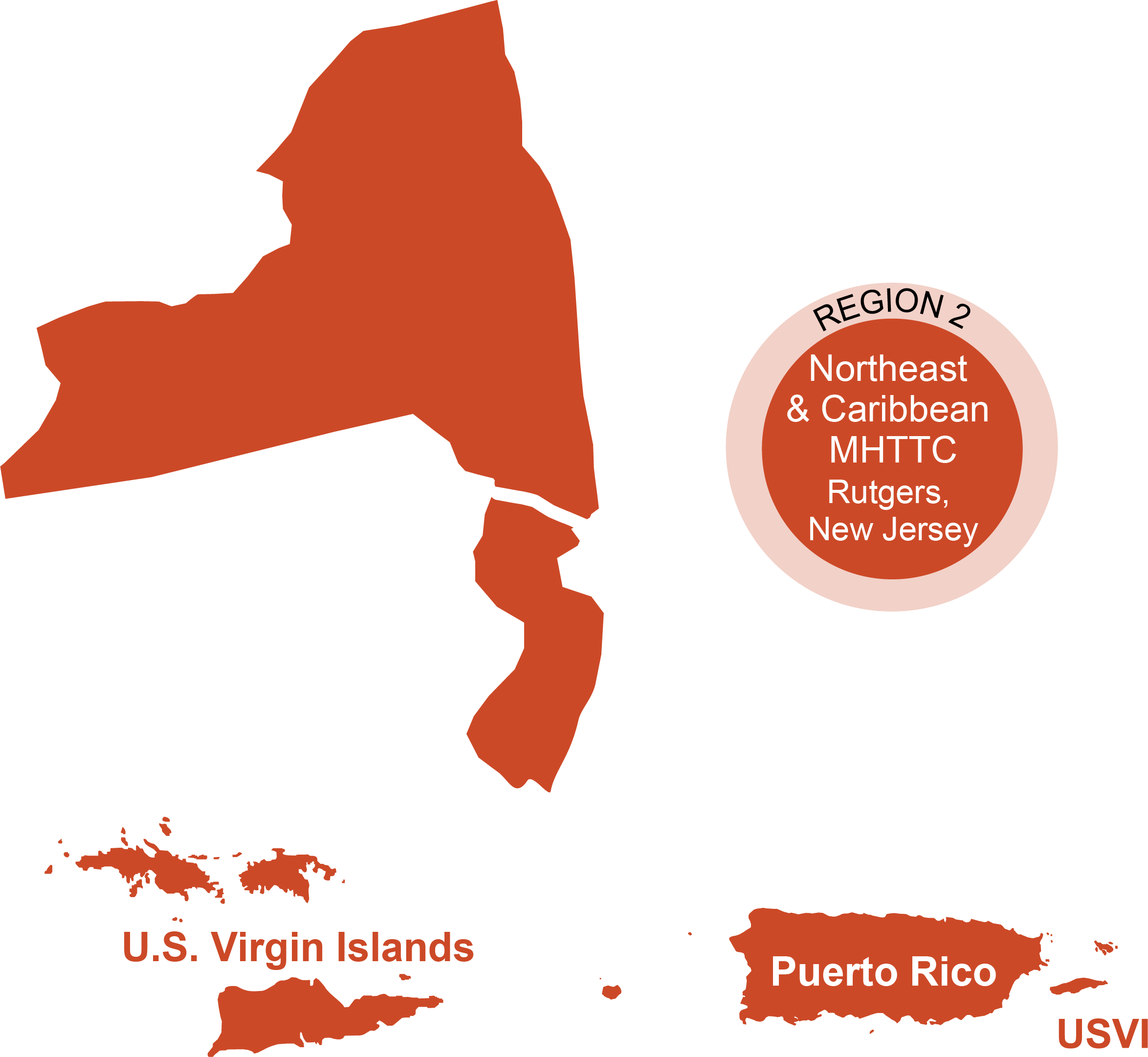Home > MIC Stories: Motivational Interviewing Technical Assistance Project

MIC Stories (MHTTCs Implementing Change) feature technical assistance projects that had a significant impact on practice.
Motivational Interviewing is an evidence-based practice that can assist in engaging clients into behavioral health services. “MI is a collaborative, goal-oriented style of communication with particular attention to the language of change. It is designed to strengthen personal motivation for and commitment to a specific goal by eliciting and exploring the person’s own reasons for change within an atmosphere of acceptance and compassion” (Miller & Rollnick, 2013, p. 29).
Bringing mental health professionals to competence in using Motivational Interviewing, and sustaining its use in practice is an intensive process. This project was developed in response to several requests from providers in HHS Region 2 and discussions regarding the need to implement and sustain Motivational Interviewing within their organizations and with all levels of staff, including administrators, supervisors, and direct service providers.
Between September 2019 and September 2020, we provided intensive technical assistance (TA) in Motivational Interviewing for four behavioral health service provider agencies. Portions of the intensive TA were on hold during the peak of the COVID-19 pandemic as agencies addressed emergent issues, but we were able to restart the project and move forward. The project included face-to-face tailored trainings, consultation, and implementation support for providers, supervisors, and administrators, as well as an ongoing learning community for each group.
Organizations completed an application process in which they agreed to commit time and staffing, identified needs, and outlined their support the implementation. Four behavioral health care organizations were chosen across geographic locations in New York and New Jersey: Services for the UnderServed, Inc., Mental Health Association of Columbia-Greene Counties, CPC Behavioral Healthcare, and Community Psychiatric Institute. Participants included 15 administrators, 26 clinical supervisors, and 88 direct service providers (e.g., case managers, counselors).

Over the course of one year, we utilized the following strategies:
The COVID-19 pandemic presented a difficult obstacle as organizations operated in a crisis mode to address the basic needs of individuals participating in their services. We quickly adapted the learning communities to provide necessary support to staff around emergent pandemic related issues and challenges. Ongoing check-ins with administrators enabled our MHTTC to restart Motivational Interviewing implementation once organizations identified their readiness to resume. Another challenge was staff turnover during this year-long project. In response, we are piloting a train-the-trainer approach to support ongoing training and sustainment of Motivational Interviewing within these organizations.
Baseline to end-of-project assessment results:
Key quotes from focus groups with administrators and staff:
We are providing a train-the-trainer initiative, including piloting a train-the-trainer manual with three of the organizations and evaluating the process to determine feasibility and identify barriers and facilitators. We have partnered with a Motivational Interviewing Network Trainer (MINT) for expert input and feedback on the manual. Our Center also developed a series of professionally produced videos illustrating Motivational Interviewing practices.
This project illustrated the need for intensive supports, including train-the-trainer initiatives, to sustain EBPs such as Motivational Interviewing. We also observed that the administrators were the most active in their learning community. This may have been associated with the small size of the group and the connections built among participants. Strategies to replicate this among the supervisors and direct service staff would be beneficial. Additionally, we learned (again) that MI is a deceptively simple skill; while it appears simple it is actually quite challenging. Although participants improved in their use of and comfort with the skills, ongoing internal support is needed to reach mastery.
Through this project we have refined a framework for implementing Motivational Interviewing into a variety of behavioral health settings, including those in rural, suburban, and urban areas with a variety of programs and services offered.
Miller, W.R. & Rollnick, S. (2013) Motivational Interviewing: Helping people to change (3rd Edition). Guilford Press.

The Northeast and Caribbean MHTTC located at Rutgers, the State University of New Jersey, School of Health Professions, Department of Psychiatric Rehabilitation and Counseling Professions, serves New York, New Jersey, Puerto Rico, and the US Virgin Islands, providing training, technical assistance, and resource dissemination to support and enhance the mental health workforce.
Funded by the Substance Abuse and Mental Health Services Administration (SAMHSA), the Northeast and Caribbean MHTTC will work with organizations and practitioners who provide mental health services to strengthen their capacity to deliver effective, evidence-based interventions and offer the services listed below.